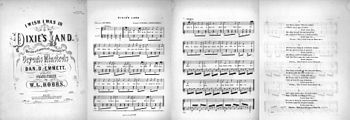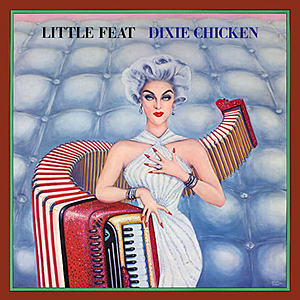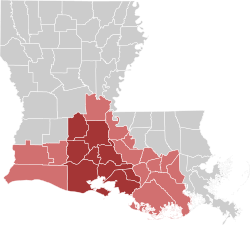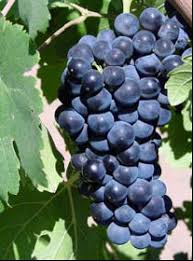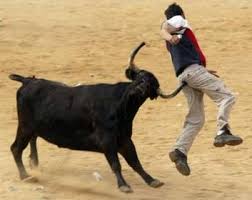He had a post the other day about hating the
serial comma, in which he proudly used an interrobang. In all my years, I had never seen it. Can you believe it
‽ Even my spell-checking device currently thinks I've made a mistake.
So I started looking into unusual punctuation, and discovered... surprise! the French. They really are the people most enthusiastic about their own language I've ever witnessed. This includes the punctuation marks they've made up for themselves.
Brief history of punctuation:
Punctuation of course developed when people started making lots of copies of the Bible--which was meant to be read aloud. They put dots and marks to help the reader, and they invented capital letters, too!
Punctuation didn't really become standardized until printing came about, and typewriters even regulated trends: for the most part, punctuation was minimized because a period or a comma took up as much valuable ribbon space as a letter.
I guess once computers came into common usage, people started using punctuation more freely.
We generally assume that punctuation marks all serve the same purpose in every language, but they do vary slightly from region to region.
In Western languages, a period marks a full stop with only slight variations.
"Carefree" means "free from care or anxiety." (American style)
"Carefree" means "free from care or anxiety". (British style)
In some Asian languages, notably Chinese and Japanese, a small circle is used instead of a solid dot: "??"
In the Devanagari script used to write Hindi, Sanskrit and some other Indian languages a vertical line "|" is used to mark the end of a sentence.
In Thai, no symbol corresponding to full stop is used as sentence marker. A sentence is written without spaces and a space is typically used to mark the end of a clause or sentence.
More interesting than periods:
In English, quotation marks are most commonly used to quote someone. It is unfortunate that
many English speakers do not know what other functions quotation marks may serve.
In a lot of languages, we use these funny angle quotes. «…» In Belarusian, Catalan, Danish, French, Swiss, German, Greek, Italian, Latvian, Norwegian, Portuguese, Russian, Spanish, Turkish and Ukranian. I don't know why.
What's even weirder is that whether languages use the angle quotes or the comma quotes SOMETIMES THEY POINT IN DIFFERENT DIRECTIONS.
„…"
Don't ask me to explain it.
Ok so back to funny looking question marks and the French.
Not only do they embrace the interrobang as relatively standard, they also have what's called an irony mark. ؟ The French are silly.
In other news…
Soo... how many spaces do you put after a sentence? I always put two. Before typewriters, all European languages has a long tradition of using spaces of varying widths for the express purpose of enhancing readability.
Once stuff got more standardized, French spacing inserted spaces around most punctuation marks, but single-spaced after sentences, colons, and semicolons. English spacing removed spaces around most punctuation marks, but double-spaced after sentences, colons, and semicolons.
Money makes the world go 'round.
The reasons were predominantly commercial rather than stylistic. A key change in the publishing industry from the mid-19th century to the mid-20th century was the enormous growth of mass-produced books and magazines. Increasing commercial pressure to reduce the costs, complexity, and lead-time of printing deeply affected the industry, leading to a widening gap between commercial printing and fine printing.
The underlying reasons for the changes were:
ease and speed, since far less physical type and more importantly far less skilled effort was required
cost, since fewer man-hours were required and the condensed text required less paper. The bulk of the cost saving was typesetting-related rather than paper-use-related
cultural, since new typesetters (and readers) had grown up with typewriters and the standard typists' spacing approximations of good typesetting
But then, what was French spacing became English spacing, and vice versa.
The earliest use of this inversion was apparently 1994 by the University of Chicago Press. By the mid-2000s this usage had been widely asserted on the internet.
It is not clear why this reversal occurred.
It is possible that it was an attempt to discourage the practice by labeling it alien.
The moral of the story is:
I really love the French—and how much they love their language.










